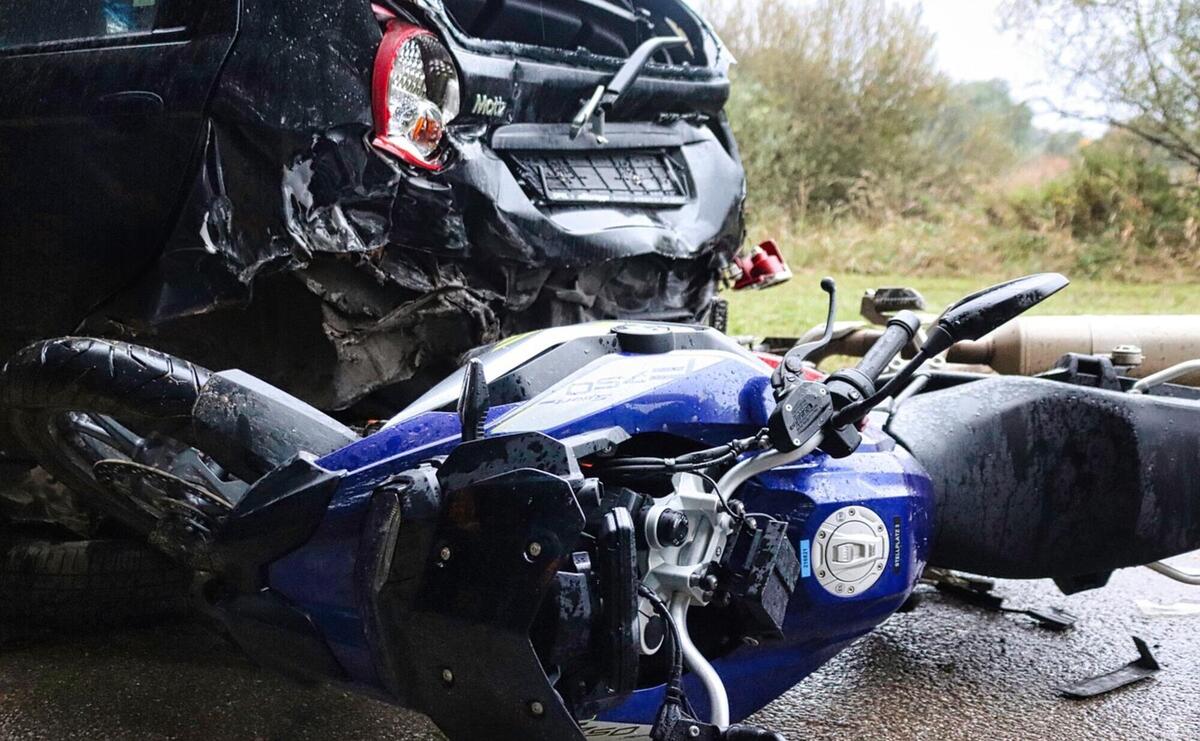Understanding Motorcycle Accident Liability: Legal Recourse for Victims
Located in the picturesque region of Southern California, Rancho Cucamonga embodies the quintessential California lifestyle with its blend of urban sophistication and natural beauty. Boasting stunning mountain views and a warm Mediterranean climate, this vibrant city offers a haven for outdoor enthusiasts and cultural aficionados alike. Its diverse population reflects the rich tapestry of cultures that thrive within its borders, creating a welcoming and inclusive community where residents forge lasting connections and friendships.

Amidst the charm and allure of Rancho Cucamonga, however, lurks the potential for unforeseen accidents, including motorcycle collisions, which can shatter lives in an instant. The aftermath of motorcycle accidents can be devastating, leading to injuries and even fatalities. Determining liability becomes essential when seeking compensation for the victims. This is where an experienced Rancho Cucamonga motorcycle accident lawyer can help. This article aims to illuminate the concept of liability in motorcycle accidents and explore the options available to those impacted.
Definition of Liability in Motorcycle Accidents
Liability refers to the obligation that one party holds for the harm inflicted on another individual during an accident. Proving liability entails demonstrating that someone’s negligence or wrongful actions were responsible for the accident and subsequent injuries.
Negligence in Motorcycle Collisions
Negligence often plays a role in motorcycle accidents. It occurs when an individual fails to exercise care, resulting in harm or injury to others. Examples of negligence seen in motorcycle collisions include:
- Distractions While Driving: A driver diverting their attention from the road, like texting while driving, can easily collide with a motorcyclist.
- Speeding: Excessive speed diminishes reaction time and vehicle control, frequently leading to crashes involving motorcycles.
- Failure to Give Way: Drivers neglecting to yield the right of way at intersections or during turns can cause accidents and harm to motorcyclists.
- Impaired Driving: Driving under the influence of alcohol or drugs can seriously impair a person’s judgment and physical coordination, leading to an increased risk of accidents.
- Sudden Lane Changes: Lane change violations occur when drivers do not properly check their rear spots or fail to signal before changing lanes, posing a danger to motorcyclists who could suffer injuries in collisions.
Establishing Fault in Motorcycle Accidents
Determining who is at fault is crucial for receiving compensation after a motorcycle accident. Various pieces of evidence are key in this process:
- Police reports contain details about the accident scene and crucial evidence that can help establish fault.
- Witness statements from bystanders or other involved parties who witnessed the accident offer supporting perspectives and accounts.
- Photos and videos of the accident scene can provide details to determine liability.
- Medical records detailing the victim’s injuries are vital for assessing fault and calculating compensation.
Seeking Legal Recourse
Victims of motorcycle accidents have legal recourse available to them for seeking compensation. Engaging the services of an experienced personal injury attorney is recommended to effectively navigate the legal process. Here are some avenues for seeking legal recourse:
- Insurance Claims: Motorcyclists injured in accidents may file claims with their insurance companies, the at-fault driver's insurance company, or both, depending on the circumstances.
- Personal Injury Lawsuits: If negotiations with insurance companies fail or do not result in adequate compensation, victims can file personal injury lawsuits against the responsible party to seek fair compensation for their losses.
- Wrongful Death Claims: In cases where a loved one has died as a result of a motorcycle accident, surviving family members may be eligible to pursue wrongful death claims against the negligent party.
Determining Adequate Compensation
Various factors play a role in determining the compensation that an injured party may receive after a motorcycle accident:
- Medical Costs: Compensation should encompass bills stemming from accident-related injuries as well as any future medical expenses resulting from these injuries.
- Income Loss: Victims often experience work absences due to injuries sustained in the accident, leading to income loss. The compensation should cover lost wages during recovery and potential future earnings if their capacity to work is affected.
- Pain and Suffering: This aspect of compensation addresses the pain, anguish, and emotional distress caused by injuries and how these factors impact the overall quality of life.
- Damage to Property: The compensation should include the expenses for repairing or replacing motorcycles or any other property that was damaged in the accident.
In Summary
Motorcycle collisions can result in lasting emotional and financial challenges for those involved. It is crucial for individuals impacted by motorcycle accidents to comprehend liability issues and pursue action in order to receive the compensation due to them. By enlisting the support of a personal injury lawyer, affected individuals can navigate the system and strive to obtain just compensation to aid in their recovery and future endeavors.